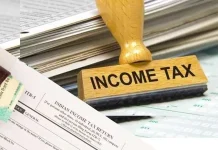
Income Tax Department: In the new tax system, the tax rates are the same for all individuals and senior citizens above 60 years to 80 years and super senior citizens above 80 years.
Benefits in New Tax Regime: The deadline for filing and submitting Income Tax Return (ITR) is now approaching. In such a situation, many taxpayers might be wondering whether they should go with the new tax system or continue with the old tax system. This dilemma will be more in the minds of those who have recently retired and have started getting pension.
In fact, in the Union Budget 2023-24, the income tax slab was changed under the new tax regime keeping in mind the common taxpayers. With this, the tax exemption limit has been increased from Rs 5 lakh to Rs 7 lakh.
Talking about senior citizens or retired pensioners, there are many pensioners who have not changed their tax regime. There will be more dilemma in their mind as to what decision to take. Generally, after retirement, pension becomes less as compared to salary. Under the new tax system, the tax exemption limit has increased.
Due to which many times they find the new system better. On the other hand, there is a facility to avail tax exemption in the old tax system, due to which attention is also attracted there. In such a situation, you should take a decision after knowing the positive and negative of both the systems.
You can choose any option
Senior citizens also have the facility to choose any option in the new or old tax system while filing income tax returns. No change has been made in this rule. According to the Income Tax Department, if a person’s age is 60 years or more, but less than 80 years, he is considered a senior citizen under the income tax rules. If the age is more than 80 years then they are considered super senior citizens.
Same rates for all in the new system
In the new tax system, the tax rates are the same for all individuals and senior citizens above 60 years to 80 years and super senior citizens above 80 years. Senior citizen taxpayers are also required to pay additional health and educational cess at the rate of 4 percent of the total income tax liability.
Under Section 87A, the tax rebate limit has been increased to Rs 7 lakh. This means that people with annual income up to Rs 7 lakh will no longer have to pay any income tax in the new tax regime. In the old tax regime, this benefit is available only on income up to Rs 5 lakh. For the first time in the new tax regime, the benefit of standard deduction is also being given.
Slab and tax in the new tax system
- Income Rs 3 lakh: No tax
- Income more than Rs 3 lakh to Rs 6 lakh: 5% tax
- More than Rs 6 lakh to Rs 9 lakh: 10% tax
- More than Rs 9 lakh to Rs 12 lakh: 15% tax
- More than Rs 12 lakh to Rs 15 lakh: 20% tax
- Above Rs 15 lakh: 30% tax
Benefits in the new system
Under the new tax system, senior citizens can claim a maximum deduction of Rs 50,000 on health insurance premium under Section 80D. If this expenditure is made for dependent senior citizens, then the eligibility for this is Rs 1 lakh in a financial year.
Senior and super senior citizen taxpayers are allowed a maximum deduction of Rs 50,000 under Section 80TTA for interest income from savings bank accounts. For general taxpayers it is Rs 10,000.












